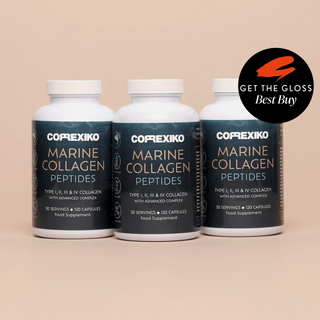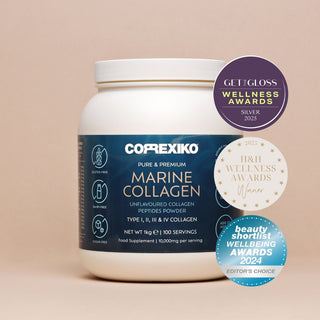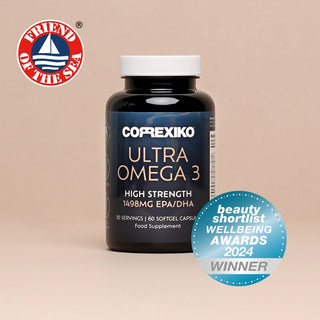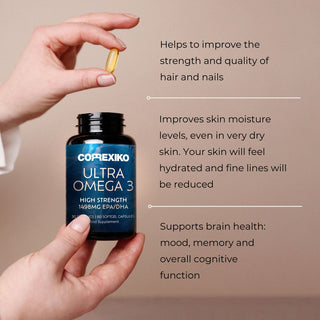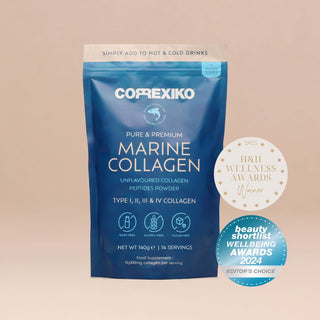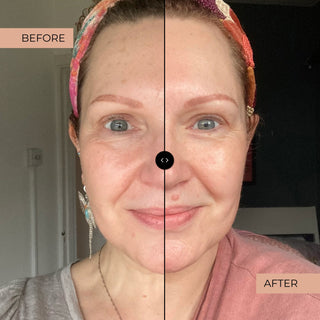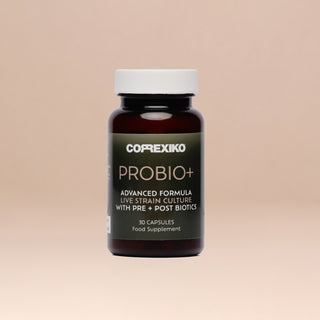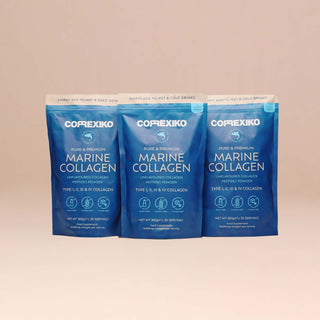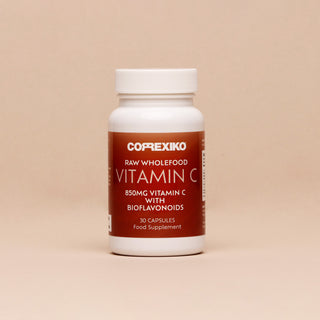You may be wondering if collagen in your diet could put you at risk of gaining weight. Correxiko highlights the before and after collagen benefits for your body
Collagen plays a connective role in tissue-based organisms, like the human body.
A lot of hesitation about taking collagen to manage dry skin, fine lines, aching joints, and even menopausal symptoms is based on the idea that adding protein to your diet can increase your waistline.
While we’d like to say no to this, the exact answer is actually much closer to “maybe”. The reasons for this are individualised.
Why you tend to gain weight
Unintentional weight gain – that is, weight you never meant to put on in the first place – is a by-product of stress, sedentary lifestyles that prevent or limit movement, lack of sleep, poor diets, hormonal imbalances, and medications that inadvertently have side effects on your specific DNA makeup can all affect your weight, even if only temporary.
A great example of this is water retention and bloating a whole lot of women experience during their menses.
It’s interesting to note that depression may also lead to weight gain, typically manifesting as eating disorders like bulimia, binging, or body dysmorphic disorder (BDD) – all of which carry their own mental health causes and triggers.
Why you might be losing weight
It’d be easy to think that the reasons for unexplained and unexpected weight loss may be the opposite of those for weight gain, but that’s not the case.
This is why we called it a “maybe” when you asked that question.
Other than medical conditions or an adverse reaction to medications for specific conditions, mental health also plays a pivotal role in unintentional weight loss.
These mental health issues may include:
- Stress or undue pressure
- The loss of a loved one (grief)
- Terminated relationships
- Major life events (relocating, job loss, etc)
Can Collagen Make You Gain Weight?
No matter what you currently weigh, collagen (protein) stabilises your weight, bringing it up (or down) to the ideal weight for your current activity levels.
It’s important to remember that kilojoules – and thus the amount of energy you use – determine how your body processes food.
How your body reacts before and after collagen production depends largely on your attitude towards food in general, and the ageing process, specifically.
- Eat less than you need, and your body draws on reserves it doesn’t have to keep you going
- Eat more than you need (or the wrong kind of foods) and your body can’t process the excess so it stores it
- Eat a series of balanced and well-timed meals, enhance your diet with essential vitamins and minerals, and supplement with Marine Collagen Powder and Capsules to maintain a healthy weight for your current activity levels


